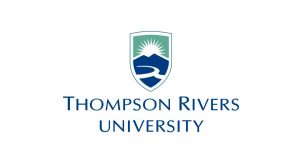
(Thompson Rivers University in Kamloops, BC)
CLICK HERE, for Part I, the paper and backstory.
CLICK HERE, for Part II, the Pyne interview
This is Part III of a story involving economics Professor, Derek Pyne. Pyne published a paper studying the economic impacts of “predatory publishing” in academic journals. This led to international attention.
Predatory Journals In Essence
-Mailbox addresses (suites) given in address
-Journal no one has heard of before
-Very quick turnaround times
-Questionable, if any, peer review
-Questionable “Impact Factors Analysis”
-Real journal will provide abstract, fake will make you buy entire article, paywall
Pyne had been suspended in the fall of 2018. He cited several reasons, including this publication. In the interest of fairness, Thompson Rivers University was contacted for their side of the story.
While Professor Pyne agreed to an in person meeting, TRU answered questions by email. Due to privacy and legal concerns the answers were much more restricted than what Prof Pyne had disclosed. Here is that exchange.
1/ Professor Pyne’s paper on “Predatory Journals” must have been unexpected. What is TRU’s response to it?
It is important to understand that research is an independent activity undertaken by faculty and the university is not in the practice of monitoring the publishing activity of its faculty. Professor Pyne has the freedom to publish his research and talk about his research publicly.
2/ Does TRU believe the paper to be factually accurate, or a distortion of academic publishing?
TRU does not take a position on Professor Pyne’s research other than that it supports individual faculty member’s right to research and publish their research, and for this research to be openly debated among the academic community.
3/ Was his suspension in 2018 related to the paper he produced?
The action taken against Professor Pyne was not related to his specific research, the dissemination of his research, or the exercising of his right to academic freedom. The action was related to matters that TRU is unable to comment on due to both employment and privacy law.
4/ Have there been any changes to academic publishing as a result of this release? Reviews on how grants/tenure are awarded?
As previously indicated, research is an independent activity and subject to academic discourse. On the matter of tenure and promotion, any faculty member hired or promoted at TRU goes through a robust process, which involves a review of research activity and publishing credentials. This is a process led by peers, hence, any faculty member at TRU moving through the promotion and tenure process is doing so with the endorsement of their faculty colleagues provincially, nationally, and internationally. Additional information on promotion and tenure can be found on TRU’s website.
https://www.tru.ca/__shared/assets/Principles_and_Essential_Features_of_Standards_Documents23557.pdf
5/ Has any faculty research been given a “second look” as a result of the paper?
As indicated, TRU does not monitor the independent publishing activity of its faculty. However, there are processes built within the university system where such activity is reviewed. For example, at TRU, divisional peer review committees and a university committee of Senate review publishing credentials during the tenure and promotion process of faculty. In addition, each individual faculty council and department, with input from the university’s Senate, determine the criteria for tenure and promotion, which includes close scrutiny of publications. Faculty, chairs and deans are also involved in the hiring of any new faculty, and a review of publishing credentials would be part of that process.
6/ Professor Pyne told me he doesn’t believe the academic union is acting properly in the matter, and it has since gone to Labour Relations. Any comment on that?
TRU cannot speak on behalf of the union.
Discover more from Canuck Law
Subscribe to get the latest posts sent to your email.
